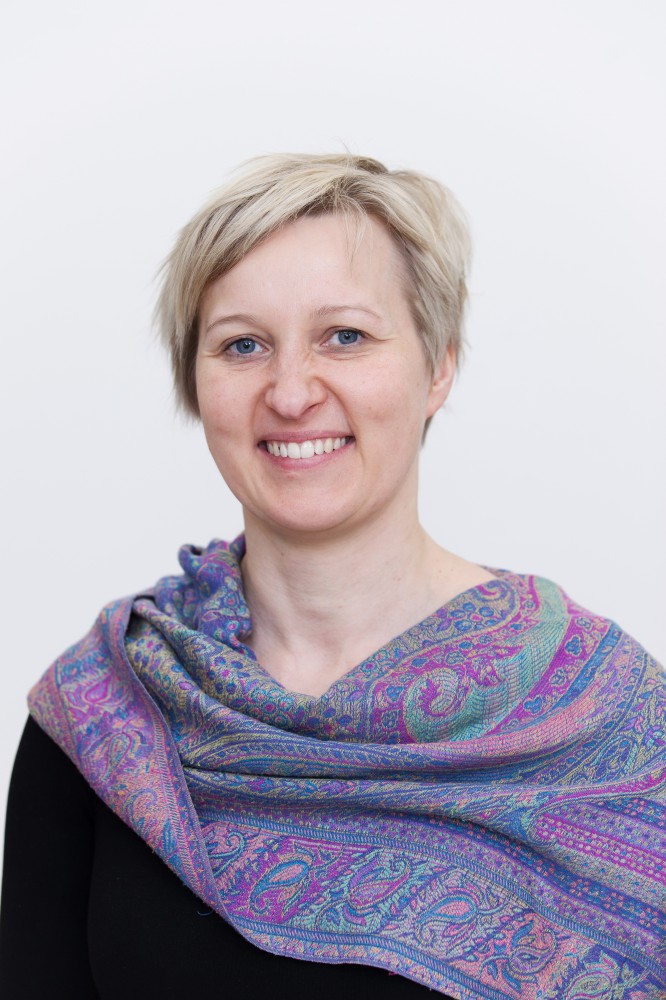Dr Niina Kolehmainen is a FLIER Programme participant and Senior Clinical Lecturer at Newcastle University where she studies the importance of everyday physical activity in babies and children.
When I finished school, I didn’t have a clear idea of what I wanted to do. I knew I was quite a curious person and I wanted to help children to have a stronger voice in society.
I applied to study everything from nursing to airplane mechanics and I ended up doing occupational therapy, even though I didn’t really know what it was. It turned out to be good fun and it fed into my sense of curiousness, so I carried on. I did my degree in Finland then decided to move to the UK where I worked full time in the NHS in various roles.
Then, one Sunday, I was Googling for inspiration of how to change my work to keep it interesting, and I saw a clinical research job advertised at the University of Aberdeen. I got the job and ended up applying for PhD funding to do research in children’s health. By the end of my PhD, I realised that I’d found something I really enjoyed, and I wanted to carry on with research.
Over the years, my research has become increasingly about everyday movement and activity in the under-fives, even in babies when they are on a mat on the floor, just moving their legs or wriggling their bodies.
We already know quite a lot about the benefits of activity in children aged five, six, seven-years old and onwards, and we know that there’s already a big discrepancy in activity levels when children reach five to six-years old. What we don’t know is how the under-fives play into this.
My work involves parents and children, including children with developmental concerns. I work with the university sector, the NHS, local authorities and leisure providers. Trying to lead things in that context can be quite challenging because you’re having to negotiate different environments, cultures and ways of working.
That’s what the FLIER programme is about: developing all the different dimensions in how you’re going to navigate your challenges, how you’re going to survive and how you’re going to be effective in these mixed environments.
The programme is a very exciting interplay between the facilitators, the Academy of Medical Sciences and the FLIER participants. I was talking with a facilitator recently and I honestly think it was a career-changing conversation. There are a lot of conversations like that on the FLIER programme.
Next year we will work on a cross-sector project. I’m planning to focus on the way we measure everyday movement in the under-fives, both the technology and the way we think about movement.
For instance, most of the activity monitors in current use measure all body movement, but in under-fives the child is often not the one moving their body. Instead they’re being pushed on a swing or carried by a parent. So the monitors pick up parent’s movement as well as the child’s movement.
I’m also interested in whether all movement is equal, or whether the situation makes a difference. Is the child moving at a play park with others, or in a physio session with a therapist? And what does all this mean to how we understand and assess young children’s movement, and the innovations we design to promote movement?
I’ve got plans and ambitions, and my questions would easily fill another 15 or 20 years of research. I’m also keeping in mind that some of the best things have come my way because I’ve been open for new opportunities.
Dr Niina Kolehmainen is a participant in Round 1 of the Academy of Medical Sciences’ FLIER Programme, a unique programme that will develop leaders of the future who can create collaborations across academia, industry, the NHS and government to drive innovation.
The FLIER Programme is generously supported by the Dennis and Mireille Gillings Foundation and the Government Department of Business, Energy and Industrial Strategy ‘Investment in Research Talent’ fund. If you would like to support the work of the Academy to develop talented researchers, visit our Supporters page.
